Daihatsu Charade, 2006



Ignoring hybrids, the Daihatsu Charade has arguably the world's most efficient 1.0 litre petrol engine with an unrivalled fuel economy, exhaust emission and performance combination.
The Daihatsu Charade is the UK's No 1 four-seater for petrol-engine economy with Urban/Extra Urban and Combined figures of 47.1/68.9 and 58.9 mpg in manual form.
The 58.9 mpg figure is a staggering 14.1 mpg better than the Hyundai Amica 1.0, 11.8 mpg superior to a Fiat Seicento and leads the SEAT Arosa 1.0 litre by 11.2 mpg.
All its city car rivals are substantially slower, failing to remotely match the Daihatsu Charade manual's 99.4 mph top speed or automatic's 93.1 mph maximum - and with much higher CO2 exhaust emissions.
In fact, the Daihatsu Charade manual's emissions of 114 g/km qualifies the owner for the lowest possible Road Fund Licence charge of £70 for 12 months (AA band up to 120 g/km).
Not to be outdone, the Daihatsu Charade automatic is also a class-leader with Urban/Extra Urban and Combined fuel economy figures of 38.7/55.4 and 47.9 mpg. Its CO2 exhaust emissions are an ultra-low 140 g/km. Naturally, the new car complies with Euro4 emission standards.
As for acceleration, the new Charade is also in a class of its own with 0-62 mph times of 12.2 seconds for the manual and 15 seconds for the automatic. To put this into context, the manual's figures precisely match the 1.4 litre 75 PS Peugeot 206.
Three Cylinder, Twin-Cam With Dynamic Variable Valve Timing
Daihatsu has long experience in the art of producing efficient small-capacity three cylinder engines which are currently offered on both the smaller Cuore and larger Sirion. A three-cylinder unit gives greater torque than a four with reduced internal friction - both ideal for maximising flexibility and efficiency.
The Daihatsu Charade's in-line 989 cc engine has a bore and stroke of 72 x 81 mm, a 10:1 compression ratio and features both twin-overhead camshafts with 12 valves and Dynamic Variable Valve Timing (DVVT).
DVVT provides even stronger low-speed pulling power - which results in fewer gear-changes - yet also increases power at the top-end of the engine's rev-range, boosting overtaking ability.
New features for the Charade include a resin port intake manifold and a head cover incorporating an air-cleaner case. Both reduce weight and strengthen torque in the most frequently used rev-range. Maximum power is 58.5 PS at 6,000 rpm with torque of 67.1 lb ft at 4,000 rpm.
Improved Transmission
Compared to the Cuore and Sirion, the new Daihatsu Charade has an improved five-speed manual transmission with a more precise, linear and direct shift feel.
Fourth and fifth gears pull a relatively high 17.8 and 21.7 mph per 1,000 rpm which reduces engine speed and therefore noise. The automatic transmission is a new 4-speed unit.
European Feel For Suspension
Daihatsu benchmarked the larger Renault Clio for ride and refinement, with extensive development work being undertaken on European roads.
The result is an especially long suspension stroke for the Charade's front and rear arrangement, both in compression and rebound. This provides a subtle, compliant ride but with firm damping control for reduced float.
The front suspension is by conventional MacPherson struts with coil springs and a new 'L' shaped lower arm which gives more precise control of wheel movement.
The rear suspension is via the well-proven semi-independent torsion bar system with separate coil springs. However, compared to other models, the shock-absorbers are mounted more vertically, again providing better damping control and reducing the transmission of road noise.
Standard High-Tech Power-Steering
The Daihatsu Charade's standard power steering uses the latest technology to provide optimum feel, quick responses and reduced fuel consumption.
Instead of relying on an engine-driven pump, the new speed-sensitive electric power steering comprises a torque sensor, computer and assist motor which barely require any energy to operate.
Because of its light weight and finely-tuned suspension, the new Daihatsu Charade can provide high levels of cornering grip with relatively narrow-section 155/65R13 tyres mounted on 13 x 4 ins steel or alloy wheels. This helps fuel economy thanks to a low rolling resistance.
'Best-In-Class' Braking Performance
As for braking performance, Daihatsu aims to provide 'best-in-class' stopping distances partly thanks to the excellent anti-dive characteristics of the front suspension.
In addition, the front disc pads are made from high-friction material and the tyres also benefit from high straight-line grip levels.
The Daihatsu Charade is fitted with solid front disc and rear drum brakes operated by an 8 ins servo unit. The anti-lock-braking system incorporated EBD (electronic brakeforce distribution). This optimises braking force according to the weight distribution of passengers and luggage.
'Best-In-Class' Refinement
Daihatsu again used the Renault Clio as its benchmark for NVH with the aim of being not only best in the city car class but also among superminis.
For example, special attention was placed on engine boom, idling shake, running vibration and wind noise - all areas which can contribute to a small car becoming tiring on a long journey.
The Charade's sector-leading aerodynamics of 0.31 Cd not only improves fuel economy and provides a higher top speed - it also makes the car quieter.
Apart from having a more rigid body than previous Daihatsus, the Charade features a new engine installation comprising three widely-spread mounting points employing soft rubber.
The system better dampens noise and vibration and reduces engine movement or 'shunt', especially when moving away from rest. An H-shaped front frame is also fitted, together with a performance rod to further reduce vibration.
Top-Level Safety Performance
Top-level safety performance is promised for the Daihatsu Charade with previously unheard of levels of passenger and pedestrian protection for such a small car.
The Daihatsu Charade complies with criterion comparable with a 4-Star Euro NCAP for passenger safety and 3-Star for pedestrian.
The platform is new and makes extensive use of high-strength steels for areas such as the floor pan, B-posts and front engine-mounting frame. This new energy-absorbing structure better disperses impact forces.
Designed to offer 'best-in-class' protection in 'real-world' accidents, the new Daihatsu Charade has a straight front side member with its end height at the same level as, for example a Toyota Corolla, Avensis or Lexus. Its car-to-car collision performance was designed around these considerably larger cars.
Other passive safety features include side-impact protection door beams, driver and passenger airbags plus the availability of side airbags. The front seatbelts are height-adjustable and feature both force-limiters and pre-tensioners. Both front and rear seats have adjustable head restraints.
The new Charade features Daihatsu's impact-sensing release system. During a collision it unlocks the doors and turns on the interior light and hazard warning lights to enable easier escape or rescue.
The Daihatsu Charade is the UK's No 1 four-seater for petrol-engine economy with Urban/Extra Urban and Combined figures of 47.1/68.9 and 58.9 mpg in manual form.
The 58.9 mpg figure is a staggering 14.1 mpg better than the Hyundai Amica 1.0, 11.8 mpg superior to a Fiat Seicento and leads the SEAT Arosa 1.0 litre by 11.2 mpg.
All its city car rivals are substantially slower, failing to remotely match the Daihatsu Charade manual's 99.4 mph top speed or automatic's 93.1 mph maximum - and with much higher CO2 exhaust emissions.
In fact, the Daihatsu Charade manual's emissions of 114 g/km qualifies the owner for the lowest possible Road Fund Licence charge of £70 for 12 months (AA band up to 120 g/km).
Not to be outdone, the Daihatsu Charade automatic is also a class-leader with Urban/Extra Urban and Combined fuel economy figures of 38.7/55.4 and 47.9 mpg. Its CO2 exhaust emissions are an ultra-low 140 g/km. Naturally, the new car complies with Euro4 emission standards.
As for acceleration, the new Charade is also in a class of its own with 0-62 mph times of 12.2 seconds for the manual and 15 seconds for the automatic. To put this into context, the manual's figures precisely match the 1.4 litre 75 PS Peugeot 206.
Three Cylinder, Twin-Cam With Dynamic Variable Valve Timing
Daihatsu has long experience in the art of producing efficient small-capacity three cylinder engines which are currently offered on both the smaller Cuore and larger Sirion. A three-cylinder unit gives greater torque than a four with reduced internal friction - both ideal for maximising flexibility and efficiency.
The Daihatsu Charade's in-line 989 cc engine has a bore and stroke of 72 x 81 mm, a 10:1 compression ratio and features both twin-overhead camshafts with 12 valves and Dynamic Variable Valve Timing (DVVT).
DVVT provides even stronger low-speed pulling power - which results in fewer gear-changes - yet also increases power at the top-end of the engine's rev-range, boosting overtaking ability.
New features for the Charade include a resin port intake manifold and a head cover incorporating an air-cleaner case. Both reduce weight and strengthen torque in the most frequently used rev-range. Maximum power is 58.5 PS at 6,000 rpm with torque of 67.1 lb ft at 4,000 rpm.
Improved Transmission
Compared to the Cuore and Sirion, the new Daihatsu Charade has an improved five-speed manual transmission with a more precise, linear and direct shift feel.
Fourth and fifth gears pull a relatively high 17.8 and 21.7 mph per 1,000 rpm which reduces engine speed and therefore noise. The automatic transmission is a new 4-speed unit.
European Feel For Suspension
Daihatsu benchmarked the larger Renault Clio for ride and refinement, with extensive development work being undertaken on European roads.
The result is an especially long suspension stroke for the Charade's front and rear arrangement, both in compression and rebound. This provides a subtle, compliant ride but with firm damping control for reduced float.
The front suspension is by conventional MacPherson struts with coil springs and a new 'L' shaped lower arm which gives more precise control of wheel movement.
The rear suspension is via the well-proven semi-independent torsion bar system with separate coil springs. However, compared to other models, the shock-absorbers are mounted more vertically, again providing better damping control and reducing the transmission of road noise.
Standard High-Tech Power-Steering
The Daihatsu Charade's standard power steering uses the latest technology to provide optimum feel, quick responses and reduced fuel consumption.
Instead of relying on an engine-driven pump, the new speed-sensitive electric power steering comprises a torque sensor, computer and assist motor which barely require any energy to operate.
Because of its light weight and finely-tuned suspension, the new Daihatsu Charade can provide high levels of cornering grip with relatively narrow-section 155/65R13 tyres mounted on 13 x 4 ins steel or alloy wheels. This helps fuel economy thanks to a low rolling resistance.
'Best-In-Class' Braking Performance
As for braking performance, Daihatsu aims to provide 'best-in-class' stopping distances partly thanks to the excellent anti-dive characteristics of the front suspension.
In addition, the front disc pads are made from high-friction material and the tyres also benefit from high straight-line grip levels.
The Daihatsu Charade is fitted with solid front disc and rear drum brakes operated by an 8 ins servo unit. The anti-lock-braking system incorporated EBD (electronic brakeforce distribution). This optimises braking force according to the weight distribution of passengers and luggage.
'Best-In-Class' Refinement
Daihatsu again used the Renault Clio as its benchmark for NVH with the aim of being not only best in the city car class but also among superminis.
For example, special attention was placed on engine boom, idling shake, running vibration and wind noise - all areas which can contribute to a small car becoming tiring on a long journey.
The Charade's sector-leading aerodynamics of 0.31 Cd not only improves fuel economy and provides a higher top speed - it also makes the car quieter.
Apart from having a more rigid body than previous Daihatsus, the Charade features a new engine installation comprising three widely-spread mounting points employing soft rubber.
The system better dampens noise and vibration and reduces engine movement or 'shunt', especially when moving away from rest. An H-shaped front frame is also fitted, together with a performance rod to further reduce vibration.
Top-Level Safety Performance
Top-level safety performance is promised for the Daihatsu Charade with previously unheard of levels of passenger and pedestrian protection for such a small car.
The Daihatsu Charade complies with criterion comparable with a 4-Star Euro NCAP for passenger safety and 3-Star for pedestrian.
The platform is new and makes extensive use of high-strength steels for areas such as the floor pan, B-posts and front engine-mounting frame. This new energy-absorbing structure better disperses impact forces.
Designed to offer 'best-in-class' protection in 'real-world' accidents, the new Daihatsu Charade has a straight front side member with its end height at the same level as, for example a Toyota Corolla, Avensis or Lexus. Its car-to-car collision performance was designed around these considerably larger cars.
Other passive safety features include side-impact protection door beams, driver and passenger airbags plus the availability of side airbags. The front seatbelts are height-adjustable and feature both force-limiters and pre-tensioners. Both front and rear seats have adjustable head restraints.
The new Charade features Daihatsu's impact-sensing release system. During a collision it unlocks the doors and turns on the interior light and hazard warning lights to enable easier escape or rescue.
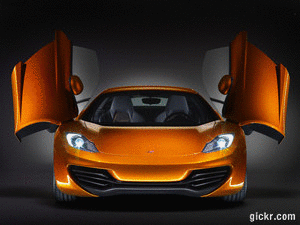
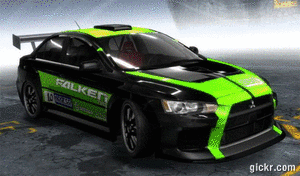
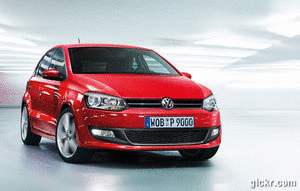
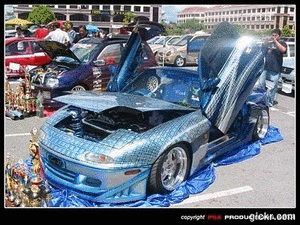
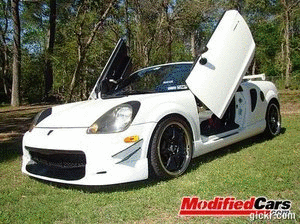
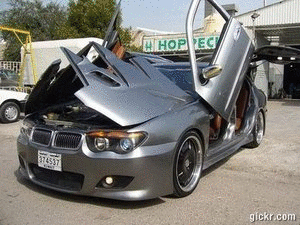
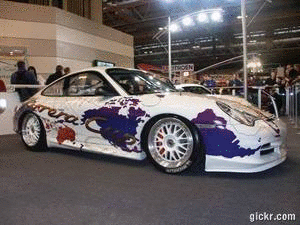
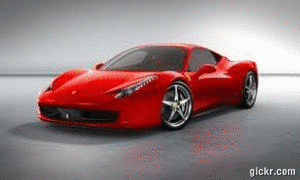
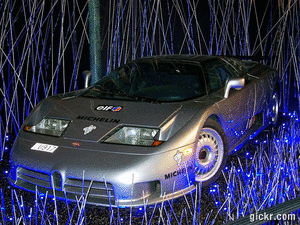
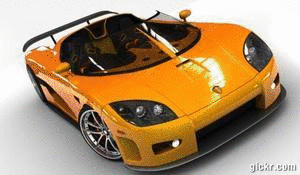
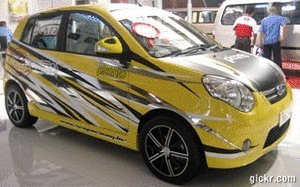
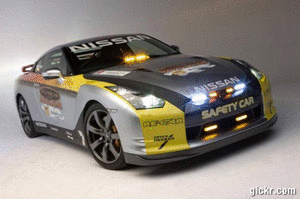
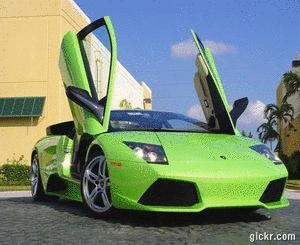
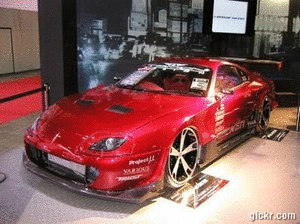


No comments:
Post a Comment